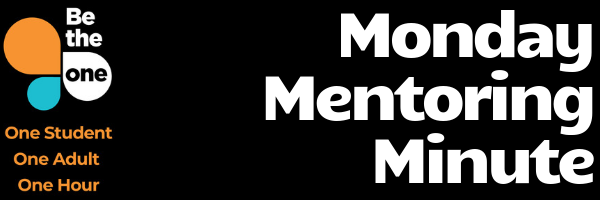Welcome back to the Mentoring Minute for the month of February!
Last week, we briefly looked at the need students have today for deep, relational connectedness. They need adults in their lives who are willing to listen and learn and walk with them through the high’s and low’s of life. This has certainly been true for all generations throughout history, but Gen Z is at a critical point where they need strong intergenerational relationships as they navigate these days we are currently living in…especially if they want to learn and develop a greater level of resilience.
This month, we’re taking a closer look at the importance of resilience as we mentor students.
Resilience has always been an important quality for students to learn and develop, and the challenges of the past year have only made that more clear.
Why is Gen Z at a critical point?
According to data from Morning Consult, this young generation is losing trust in all major institutions in the U.S. (think media, government, law enforcement, the health care system, to name a few). So, the question is, who are they looking to for advice, guidance and wisdom?
They are looking at us…the older generations.
In fact, the Morning Consult data shows that:
Gen Z trusts older generations more than any other social institution.*
The impact that we can have as mentors to the younger generations right now is huge, not only because of the trust factor, but also because of the value Gen Z places on intergenerational relationships. According to a recent study by the Barna Group, nearly half of Gen Z (44%) say they meet regularly with someone who they consider a mentor.**
As an older adult mentor, you can offer the support and guidance that students need to navigate their unique circumstances as well as the challenging times we are all facing in 2021. And, you can also be confident that your presence and role as a mentor is welcomed by the students of this generation. For example, three-quarters of Gen Z (73%) agree that when difficult decisions come up, they turn to older generations for advice. And, nearly the same proportion (75%) say they welcome positive criticism from older adults.
The bottom line in all of this…we need mentors. We need more adults who are willing to take one hour a week to meet face-to-face with a student. We need more adults to intentionally invest in the younger generations at a time when they are looking to us for advice, guidance, and wisdom.
Will you be the one for a student in your community today?
– Jason Matthews, BTO Mentor
*Victoria Sakal, “Why Gen Z Isn’t Interested in Your Statements, Promises and Commitments—Yet,” Morning Consult, June 22, 2020.
*The study referred to in this post led to the recent publication of “Gen Z Volume 2” by the Barna Group. A portion of the content of this post was also adapted from that study.


